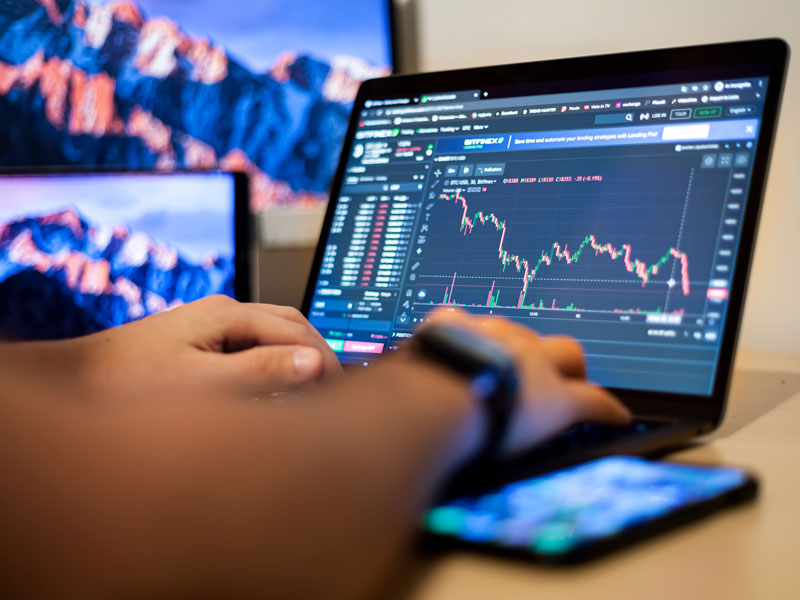
In recent years, Forex trading has gained immense popularity around the globe, including among Muslim traders. However, the challenge lies in ensuring that trading practices comply with Islamic principles. islamic forex trading https://tradingarea-ng.com/ By understanding the key tenets and ethical considerations, Muslim traders can engage in Forex trading without compromising their religious beliefs.
What is Islamic Forex Trading?
Islamic Forex trading refers to the practice of foreign exchange trading conducted in a manner that is compliant with Islamic principles. This type of trading is often associated with the prohibition of riba (usury or interest) and gharar (excessive uncertainty), which are key components of Islamic finance. Muslim traders seek to conduct their trading in a way that abides by these principles while still allowing them to participate in the global financial markets.
Key Principles of Islamic Finance
To better understand Islamic Forex trading, it is essential to grasp the fundamental principles of Islamic finance. These principles include:
- Prohibition of Riba: Any form of interest-based transactions is considered haram (forbidden) in Islam. Therefore, forex trading that involves receiving or paying interest on swaps is not permissible.
- Prohibition of Gharar: Islamic finance discourages excessive uncertainty and ambiguity in transactions. This means that contracts must be clear and transparent.
- Risk Sharing: In Islamic finance, risk-sharing is emphasized over risk-transfer. This encourages fair dealings and ensures that all parties involved in a trade share both the risks and rewards.
- Ethical Investments: Investments should be made in areas that are ethical and do not contradict Islamic values. Trading in companies that deal in alcohol, gambling, or other prohibited goods is not allowed.
How Does Islamic Forex Trading Work?
Islamic Forex trading typically occurs through a specific type of account known as an “Islamic account” or “swap-free account.” These accounts are designed to accommodate Muslim traders by eliminating the interest component of trading. Here are some aspects of how these accounts operate:
- No Swap Fees: Islamic accounts do not incur overnight swap fees, which are charged when positions are held overnight. This structure aligns with the prohibition of riba.
- Halal Trading Instruments: Traders are encouraged to choose currency pairs and trading instruments that comply with Islamic law, avoiding any that relate to haram activities.
- Transparency: All trading terms and conditions are clearly defined to avoid any form of gharar. Traders should thoroughly understand the risks associated with their trades.
Choosing an Islamic Forex Broker
Selecting the right broker is crucial for Muslim traders looking to engage in Islamic Forex trading. Here are some factors to consider:
- Regulation: Ensure that the broker is regulated by a reputable financial authority. This provides a level of security and trustworthiness.
- Swap-Free Accounts: Confirm that the broker offers genuine Islamic accounts that do not include swap fees.
- Reputation: Research online reviews and testimonials to get an idea of the broker’s reputation among other traders.
- Trading Platform: Evaluate the trading platforms offered by the broker. They should be intuitive, reliable, and capable of meeting your trading needs.
Benefits of Islamic Forex Trading
Engaging in Islamic Forex trading offers several benefits to Muslim traders. These include:
- Compliance with Faith: Trading in a manner that aligns with Islamic principles allows Muslim traders to participate in the financial markets without compromising their religious beliefs.
- Access to Global Markets: Forex trading provides the opportunity to tap into the vast economic opportunities available in the international currency markets.
- Diverse Trading Strategies: Islamic Forex trading allows for the application of various trading strategies, including day trading, swing trading, and scalping, within the boundaries of Sharia law.
- Community Support: There is a growing community of Muslim traders who share experiences and best practices, fostering a supportive environment.
Common Misconceptions about Islamic Forex Trading
Despite its growing popularity, there are several misconceptions about Islamic Forex trading. Addressing these misconceptions is crucial for potential traders:
- Myth: All Forex Trading is Haram: While traditional trading that involves interest may be haram, Islamic Forex trading through halal practices is permissible.
- Myth: Trading is Gambling: Forex trading and gambling are fundamentally different. While both involve risk, trading relies on analysis and strategies rather than sheer luck.
- Myth: Islamic Accounts are Just a Marketing Strategy: Many brokers offer genuine Islamic trading accounts that comply with Sharia principles, and they are not merely marketing gimmicks.
Conclusion
Islamic Forex trading provides a valuable opportunity for Muslim traders to participate in the financial markets while adhering to their faith. By understanding the principles of Sharia law, selecting the right broker, and employing ethical trading practices, Muslim traders can successfully navigate the world of Forex. As this market continues to expand, so too will the opportunities for ethical and compliant trading, allowing Muslims to engage in financial activities that are both profitable and consistent with their beliefs.

